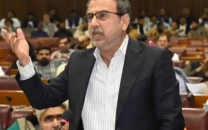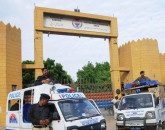Right to information law ‘bitter pill for the corrupt’
Speakers urge government to improve Freedom of Information laws

STOCK IMAGE
Despite opposition from several elements, the Right to Information Act is there to stay in Khyber Pakhtunkhwa, KP Information Commissioner Abdul Matin Khan said on Tuesday.
He was addressing a seminar titled: State of Right to Information in Pakistan organised by Pakistan Institute of Legislative Development and Transparency (PILDAT).
“The law is a bitter pill for corrupt elements, but this law is here to stay,” he said.
He said that there was a need to raise awareness among people about the law and its benefits. “We tried to impellent the law in Malakand Division. Approval of the federal government was necessary for this. I asked the federal government to implement it with certain restrictions, ie excluding security agencies, police and levies. However, the federal government did not agree to it,” he said.
He said that he had served as a sessions judge in several districts of Kohistan. “If someone murders his enemy there, he also kills his wife. This way, the case becomes an honour killing. According to the traditional law, there is no action in such cases. People want to know the reality behind such cases,” he said.
Khan said that the law had received great support from the media. “The recent efforts to amend the law by the KP Assembly were unsuccessful only because of the media’s support. Already, the law is being used by citizens to inquire about government expenses, recruitments and transfers as well as for improving the standard of medical facilities in prisons,” he said.
Punjab Information Commissioner Mukhtar Ahmad Ali urged the media to support the country’s fledgling right to information movement. “This will help expedite the passage of the country’s internationally-acclaimed Right to Information (RTI) Bill. It was finalised two years ago, but has been pending enactment by Parliament.
The RTI law empowers reporters and journalists to pursue and investigate stories that interest them. It provides them with a reliable and effective means of verifying the information,” he said.
He said that information obtained through RTI requests was more accurate and verifiable than information obtained through other sources.
He said that his office lacked proper staff. “I myself have to check the post and draft letters for replying to different departments,” he said.
Former information minister Javed Jabbar said that it was ironic that the Freedom of Information Ordinance 2002 had been passed by a military-backed government. “Previously, efforts in this regard during civilian governments of Benazir Bhutto and Mian Nawaz Sharif had failed. In more than seven years of civilian rule since the overthrow of the military government, no significant improvement has been made to the law,” he said.
He said that citizens and the media should put pressure on the government to pass more effective RTI laws and ensure their effective implementation.
Ahmed Bilal Mehboob, the PILDAT president, said that the government should update the RTI laws. “They should be extended to the centre, Sindh and Balochistan provinces as well, which fail to meet even the most basic international standards on RTI,” he said.
Published in The Express Tribune, October 14th, 2015.


















COMMENTS
Comments are moderated and generally will be posted if they are on-topic and not abusive.
For more information, please see our Comments FAQ